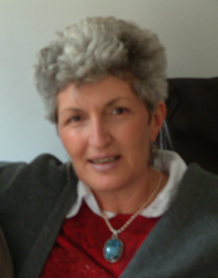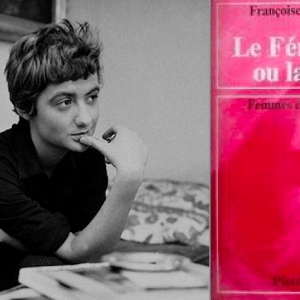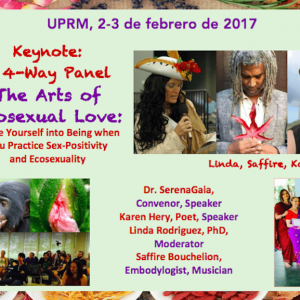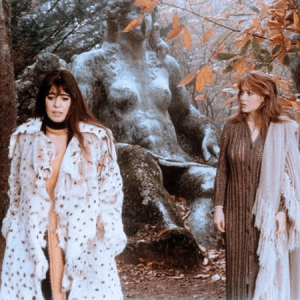Hi lovely Earthlings!
And here we come to the third episode of Friday is for Poetry, where yours truly introduces you to her dad’s love life, “Women,” a beautiful tapestry of many intersecting loves. Luigi Anderlini always was handsome with the beauty of intelligence and the courage of hope. But he was shy as young man. Not a Don Giovanni at all! He became a widower at the age of 46 as a senator in a country with no legal divorce, or at least, a very young divorce law that nobody knew how to practice yet. No wonder there was that constant buzz around him of women, hopefuls, waiting to find out who the most papabile was, the next one to be made pope. Luigi was always diligent, he didn’t make promises, he sometimes ran into trouble, and was not very capable of or trained in discussing his love life openly with his kids, us. partly it was the legacy of Catholicism, a religion he had repudiated, to imply that widowhood was the end of love. Partly it was the very indecisiveness of the situation: was he going to form a new, blended family, find a companion for his later years, or both? Partly it was the difficulty of assessing the loss of his first wife, your truly’s mom, and the lack of attention that caused it as the family failed to see what was coming upon her. Be that as it may, Luigi remembered his initiations into the practice of love, his everlasting desire to be a source of this magical energy as his life unfolded, and the women whose mark on his soul was most significant.
As in the poem, so in life, Luigi Anderlini dreamed of women in his life who got along. His is a dream of inclusive love.
The occasion is also hospitable to sharing family images that yours truly hopes you will enjoy.
WOMEN
“joy
that you all modestly bestow on earth”
Foscolo – “The Graces”
I still remember your warm hand
Searching, impatient, as it opens up my fly.
Your mysterious black shrub
And your sweet invitation, “come on in!”
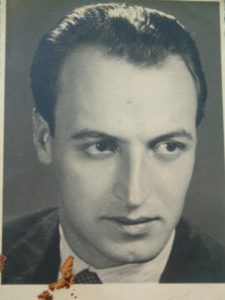 |
| Luigi Anderlini at 21 or so |
Tender milk the white of your skin,
Soft the round of your breast,
And unexpected the warmth of your sex.
You smile, hold me, and breathless
You almost cry from joy. Then happy
You smack a kiss on my forehead.
I’m still looking for it among my wrinkles
Because that hot kiss is still there,
Last gift of my adolescence.
Nobody was expecting you. We only
Knew your first name, Federica.
You arrived in the fall when the persimmon
Leaves had bared the tree’s branches
And the red fruits glowed in the sunset.
I fell desperately in love with you,
Beautiful cousin with wide gray eyes.
I sweated, I paled, I clammed up
As you displayed the unusual red
Of your lips next to the fruits.
Since then I’ve know that love breaks out
Suddenly, with no respite:
A pain piled deep in your chest
That makes your days feel light
And lifts you to the sky like a dragon-fly.
The room was cold. An oilskin
Covered half of your red bed
To protect if from a boot’s mud.
You lay down, indifferent, accessible
Playing with your teddy bear,
With circles deep under your shiny eyes.
Throbbing, I land on top of you
– “Good for you” – you say – “You’re done.”
I quickly button up. I pay and get out.
Resentful, I tell myself – “I won’t do this again” –
But I know this won’t be true.
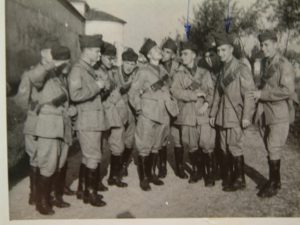 |
| Anderlini is second from right, World War II |
On the Florence train while the war raged on,
You fell in love with my uniform,
With my youth, sad and muddled.
I read your trade in your eyes.
We went to Citerea and spent three days
In a world of our own. For three nights,
My barracks and your brothel,
Your humiliations and my war
Did not enter the closed husk
Where we, stunned, affirmed
Our right to be happy.
With your watery, dilated eyes
On the bed unmade, you persuaded me
That I was nothing but an invading
Soldier to your country in war.
Your lifeless smile, your tight lips
Persuaded me that love’s games
Do not thrive on conflict or scarcity.
You left crying and on the night table
I found the meager gifts with which
I had tried to apologize to you.
I was left alone, disappointed about
Myself, the world, and the war.
You and I got drunk on spring air.
The war was over. We discovered
The swelling river loops of the Velino,
A lake’s throbbing mirror, and the sunny
Afternoon light in the summer;
Your girlfriends in the nude, who,
Unexpectedly, camouflaged to excite us.
Since then, your name, Albertine, has been
A sweet mass on my anxious heart.
Rolling hills to the vanishing point, while
In the sunset we descend from the mountain top.
Big tits that surround the valley
Of a blue green dappled in pale ochre.
Suddenly you evaporate upon the hills,
You, enormous, lie inside those curves,
Wrapped around them, swollen, expanded.
When you come back to us, your hip
Is the short arch of a curvy circle.
My desire burns with the sunset fire,
Happy and full of light.
She was very short and dark, Maria
And she liked to take long walks,
Affectionate and chatty.
She loved the sunset lights.
She knew where she was going: she’d get
On top of a gray boulder and laugh.
Tall over me, she’d let go and
Kneeled to kiss me, complacent.
When she leaned against the boulder
She was ready for a sweeping fuck.
We’d read Montale’s poems together,
With Ungaretti’s and Quasimodo’s lines.
The charm of Hermeticism got a hold of us.
We realized the best thing was brushing
Our tops against each other, like palms,
And leave the smell of the roots for another time.
A sudden fancy enthralled the two of us
Then you got lost in the gray crowd.
When in bed you expected lewd words.
But your soft oval curves bewitched me,
With your swelling boobs, and the wonderful
Shape of your buttocks. I would have rather
Yelled to you the pale pink
Beauty of your sweet ellipses;
But you did insist on the lewd calls.
“I really like my husband” Algisa
Often said, laughing. Affectionate,
She made sure I knew
With her I risked nothing.
It was just a beautiful game between us.
She brought up that connection over and over
And with her mind elsewhere
Our rendez-vous acquired a special taste.
They provided the evidence that life
Is much richer and complex than any logic.
Love is a blissful inconsistency
Of feelings, guilt, and jealousy.
In Mogadishu your black skin shines.
Over the sea a white-blue sky,
And on the beach a hundred somersaults for us.
Your voice beguiled me, Carla.
You, in the pit, locked in the translator’s cabin;
With your borrowed voice I spoke to others,
And inevitably we were tied up.
Beijing, China. A river island
And the Chinese mystery of a
Language in songs and ideograms.
You spoke Danish like Hamlet.
Tangle of unintelligible words!
Past the wall, happy, you laughed
At me dealing with the dictionary.
To speak with you I draw two lips,
A heart and an arrow, a shell;
I transcribe the notes of a nocturne;
Sol mi, re mi re, do sol.
Enchanted, almost wordless night,
With a billion Chinese all around us.
***
A procession of you steps out
Of the past, and I meet you all
In the hallway of your whore-house.
You are a crowd that whispers and laughs.
The madam is gone but her voice
Still echoes around: “Spineless guys!
You jerk up too much! Get upstairs!”
I search your eyes one by one.
But gone from your face is the
Professional gaze of the harlot.
Here are Marina’s green eyes:
No longer a provoking challenge,
They show a tender and cold light.
And Minni’s humongous tits,
Once a generous proposition,
Now a soft, maternal cushion.
There are Carla’s lips;
A dazzling offer now turned into
Respectable red lacquer.
Lola’s swelling curves, once
The promise of a lewd fuck,
Now an impish game, harmless.
Faces parade that I don’t recognize,
Women I met only once
Groping for a rapport
That wouldn’t be just fucking,
Trying to get to know each other
And find common ground.
***
The crowd disperses. I am left alone
And surprised I declaim a line
That has been buzzing my soul for a while:
“Three women came around my heart.”
One summer afternoon
Anna broke into the circle.
On the Spanish Steps the sun inserted
Golden straws in the green of her eyes,
and I got lost in the soft flow of colors,
standing in front of Rome’s crimson dusk.
It was a brief season, for at twenty
You can still play hide-and-seek
With love, wounds heal in a flash.
And she left for far away lands:
An adventure that eventually gave her
Children and maturity. Ten years later
She came back disillusioned.
Suddenly the dormant coals revived,
The new days drenched in the old flavor.
Tenacious, she went back to dig her furrow
In the large meadow of life,
Up to our days, serene, sad
Humble yet alive, as old age
And habit require.
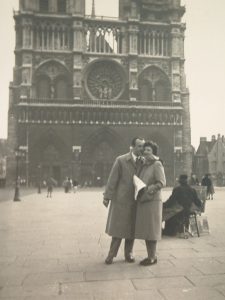 |
| Lidia and Luigi in Paris, on honeymoon, 1952 |
Lydia was instead
A mature choice, and irrevocable;
A confident giving oneself for life;
A precise desire to blossom in our children,
In the entwining of our two lives
To share our blood with other lives
Like two separate wisterias
That interlace their branches in the garden.
And for fourteen years it was like that:
Love baked like bread,
In the generous heat of the oven.
She had decided to marry me
Almost too rationally (“an experiment” she called it).
Yet she fell happily in love with her husband
And with her I so dazzled
Like one lost in a sweet labyrinth.
Days of long reveries paced by the beat
Of our twin hearts.
Then life’s fury engulfs us:
The kids, my political career, your school.
I become mayor of Narni. TV school hires you.
Serena is born. I get into Congress.
Life gets full of spice, like a soccer game
Where we win, playing as a couple,
And all defenses are routed out.
Luca is our happiness for another life.
Politics fills our every moment
But Quasimodo still tempts us, Visconti
And Brecht intrigue us, Calvino seduces us.
Then the tragedy explodes, sudden.
Almost one year of anxiety as a tumor
Convulses your bowels.
It’s the end for you, in a mode of everyday life;
the bitter, piercing cut of our separation,
The goodbye with no return.
Since then you’ve been sitting in the cold,
alone under the hill. The bloodstained
Furrow of your life has been left half done.
The years we’ve lived together lay deep
In my tired but unbeaten heart.
 |
| Luigi at a Golden Doves for Peace event |
And you, Colomba, arrive when ochres,
Reds, and yellows have already tarnished
The green of my garden.
On the horizon that is opening up
Your sweet image has been growing for a while.
The garden opens up again at your smile.
In the winter, camellias bloom again
In my expanded heart,
And my feelings are again in flower.
Then springs comes back, all of a sudden:
Large bunches of broom flowers
In our room at Vicolo del Giglio;
your colorful thread and sharp needle
(barely flashing between you fingers)
doodle a string of griffins on the fabric.
New friends warm up our lives.
Your surrender is new and sweet every time:
An embrace, forlorn and supple.
And your tenderness is a nice pillow
Where I rest my bitter thoughts.
You are paving my difficult path
To the nameless nothing.
When death arrives, I hope
It has your dry, smiling eyes.
I know that at times my three circles of love
Have almost overlapped.
They look like the Greek sign
That the Olympic Games are played under.
Sometimes the aftertaste of these complicated
Entwinements is bitter in one’s mouth;
Wonderful, demanding, unique,
Like the story of any human life.
***
And now, women, you are all here
In these lines, beautiful and impalpable.
You are one half of this sky and other ones.
Life on the planet bears your sign,
It pours from you like water from the fountain
And it crosses, transparent, the large meadow
Where any adventure blossoms and dies.
Donne
“gioia
che vereconde voi date alla terra”
Foscolo – “Le Grazie”
Ricordo ancora la tua mano calda
che mi fruga impaziente e mi sbottona.
Quella tua misteriosa macchia nera
e l’invito dolcissimo: – “Su, vieni!”.
Tenero latte il bianco della pelle,
morbidissimo il tondo del tuo seno
ed insperato il caldo del tuo sesso.
Tu sorridi, mi stringi ed in affanno
quasi gridi di gioia; poi felice
mi stampi un bacio a schiocco sulla fronte.
Io me lo cerco ancora tra le rughe
perché è rimasto li – caldo – quel bacio:
ultimo dono dell’adolescenza.
Nessuno t’aspettava. Sapevamo
di te soltanto il nome: Federica.
Arrivasti d’autunno che le foglie
spogliato aveano nel giardino il cachi
e i frutti rosseggiavano al tramonto.
Mi innamorai di te perdutamente,
bella cugina dagli occhioni grigi.
Sudai, sbiancai, ammutolii sconvolto
dal rosso inusitato delle labbra
che esponevi al confronto con i frutti.
Da allora so che amore si scatena
all’improvviso, senza darti scampo:
una pena ammassata in fondo al petto
che pure fa leggere le giornate
e in ciel ti libra come una libellula.
Fredda la stanza. La tela cerata
ricopriva a metà il letto rosso
a difesa del fango delle scarpe.
Sdraiata, indifferente, disponibile
giocherellavi con il tuo orsacchiotto,
troppo affossati i lucidi occhi neri.
Ansimante finii sopra di te
– “Sei proprio bravo” – dici – “Hai già finito”.
Mi riabbottono in fretta. Pago. Esco.
Mi dico astioso – “Non lo farò più” –
anche se so che non sarà mai vero.
Sul treno per Firenze, in piena guerra,
ti innamorasti della mia divisa,
dei miei vent’anni, tristi e scombinati.
Io ti lessi negli occhi il tuo “mestiere”.
Partimmo per Citera e per tre giorni
fummo fuori dal mondo; e per tre notti
la mia caserma e la tua “casa chiusa”,
le tue umiliazioni e la mia guerra
non scalfirono il guscio sigillato
entro il quale, storditi, proclamammo
nostro il diritto d’essere felici.
Con l’acqua dei tuoi occhi dilatati
mi convincesti sul quel letto sfatto
che io altro non ero che il soldato
che aveva invaso in guerra il tuo paese.
Quel tuo sorriso spento, a labbra strette
mi convinse che il gioco dell’amore
mal sopporta i conflitti e la miseria.
Te ne andasti piangendo e mi lasciasti
sul comodino i poveri regali
coi quali avevo tentato di scusarmi.
Solo mi ritrovai, solo e deluso
di me, del mondo intero e della guerra.
Ci ubriacavamo d’aria a primavera.
La guerra era finita. Scoprivamo
le anse gonfie d’acqua del Velino,
lo specchio trepido di lago e luce
nei meriggi assolati dell’estate,
il nudo inaspettato delle amiche
che in costume giocavano a eccitarci.
È da allora, Albertina, che il tuo nome
sul mio cuore affannato è un dolce peso.
Colline morbide al tramonto in fuga
mentre insieme scendiamo dalla vetta.
Intorno alla pianura mammelloni
verde-azzurro, striati d’ocra pallido.
Tu a un tratto evapori sulle colline,
distesa, enorme, dentro quelle curve
tonde avvolgenti gonfie e dilatate.
Quando torni tra noi su quel tuo fianco
– arco breve d’un cerchio sinuoso –
si brucia il desiderio mio nel fuoco
d’un tramonto felice e tutta luce.
Piccolina, nerissima, Maria
aveva il gusto delle passeggiate
affettuose lunghe e discorsive.
Amava assai le luci del crepuscolo.
Aveva la sua mèta: un sasso grigio
sopra il quale saliva sorridendo.
Alta sul sasso, si lasciava andare,
si chinava a baciarmi compiaciuta.
Se si appoggiava all’albero era segno
ch’era pronta a un amplesso travolgente.
Leggemmo insieme i versi di Montale,
le poesie di Ungaretti e di Quasimodo.
Ci vinse la malia dell’ermetismo.
Ci convincemmo che come le palme
era meglio sfiorarsi per le cime
ignorando l’afror delle radici.
Un capriccio ci avvinse all’improvviso
poi ti perdesti, grigia, nella folla.
Volevi a letto, tu, parole oscene
ma io ero ammaliato dalle curve
morbide, ovali, gonfie del tuo seno,
dalle forme stupende delle natiche.
Gridarti avrei voluto la bellezza
delle tue dolci ellissi in rosa pallido.
Tu preferivi invece frasi oscene.
Amava molto suo marito Algisa.
Lo ripeteva spesso sorridendo.
Voleva farmi certo – affettuosa –
che con lei non correvo rischio alcuno
e che il nostro era solo un gran bel gioco.
Quel legame più volte ribadito
e quel sentirla col pensiero altrove
davano un gran sapore ai nostri incontri.
Fornivano la prova che la vita
è più ricca e complessa d’ogni logica,
che l’amore è felice incoerenza
di sentimenti, colpe e gelosie.
Lucida pelle nera a Mogadiscio.
Bianco-azzurro del cielo sopra il mare
e sulla spiaggia cento capriole.
Fu la tua voce, Carla, a circuirmi.
Tu, in fondo, chiusa nella tua cabina;
io che parlavo agli altri con la voce
che mi imprestavi: vincolo, spessore
per un rapporto forte e ineludibile.
Cina-Pechino. L’isola sul fiume
e il mistero cinese d’una lingua
quasi cantata e per ideogrammi.
Ti esprimevi in danese come Amleto.
Garbuglio di parole incomprensibili!
Di là dal muro tu lieta ridevi
di me alle prese con vocabolario.
Per parlarti ti disegno due labbra,
un cuore ed una freccia, una conchiglia;
ti trascrivo le note d’un notturno:
sol mi, re mi re, do sol. Fu una notte
incantata, quasi senza parole
con attorno un miliardo di cinesi.
***
Vi vedo uscire in fila dal passato
e vi ritrovo tutte nel “salone
d’ingresso” della vostra “casa chiusa”.
Siete una folla che bisbiglia e ride.
La “maitresse” non c’è ma la sua voce
stagna ancora nell’aria: – “Smidollati!
Vi fate troppe seghe! Andate in camera!”
Io vi scruto negli occhi ad una ad una.
Nei vostri volti non c’è più il sorriso
professionale della meretrice.
Eccoli gli occhi verdi di Marina:
non sono più una sfida provocante,
hanno una loro luce fredda e tenera.
E quelle tette enormi della Mìnni
non sono una proposta generosa.
Sono un cuscino soffice e materno.
Eccole lì le labbra della Carla;
una offerta che allora ti stordiva.
Ora un bel rosso lacca rispettabile.
Le curve gonfie e morbide di Lola
non promettono più l’amplesso osceno,
ma un gioco malizioso ed innocente.
Sfilano volti che non riconosco,
di quelle che incontrai solo una volta
e con le quali ricercai un rapporto
che non fosse soltanto freddo amplesso
ma sempre un tentativo di conoscersi,
di scoprire comuni le radici.
***
Il salone si sfolla. Resto solo
e mi sorprendo a recitare un verso
che mi ronza nell’animo da tempo:
“Tre donne intorno al cor mi son venute”.
Anna irruppe nel cerchio un pomeriggio,
d’estate a Trinità dei Monti: il sole
inseriva pagliuzze d’oro pallido
nel verde dei suoi occhi: io mi perdei
nel morbido fluire dei colori,
davanti a Roma rosa nel tramonto.
Fu una breve stagione ché ai vent’anni
si gioca a rimpiattino con l’amore,
le ferite guariscono in un lampo.
E lei partì per terre assai lontane:
un’avventura che doveva dargli
figli e maturità. Dopo dieci anni
disillusa tornò. L’antica brace
si ravvivò ad un tratto, le giornate
di nuovo intrise del sapore antico.
Lei tenace tornò a scavare il solco
nel grande prato, fino a nostri giorni
sereni, tristi, poveri ma vivi
così come comandano vecchiaia
ed abitudine.
Lidia fu invece
una scelta matura e irreversibile,
un confidente darsi per la vita,
una voglia precisa di fiorire
nei figli, l’intrecciarsi di due vite
per altre vite nel comune sangue
come talvolta intrecciano in giardino
due glicini diversi i loro rami.
E per quattordici anni fu così:
crebbe l’amore come cresce il pane
nel caldo generoso della madia.
Lei che aveva deciso il matrimonio
quasi a freddo (“esperimento” – disse)
s’innamorò felice del marito
ed io di lei tanto storditamente
quasi perso in un dolce labirinto.
Lunghe giornate trasognate: il ritmo
era quello del battito del cuore.
Poi la vita s’infuria e ti travolge:
i figli, la politica, la scuola.
Sindaco a Narni. Tu a telescuola.
Nasce Serena. Arrivo in parlamento.
La vita si fa piena e il gusto forte
di viverla in coppia vince e sfonda
come talvolta capita allo stadio
che sbaraglino in due ogni difesa
Luca è felicità d’un’altra vita.
La politica impegna ogni momento
ma ci tenta Quasimodo, ci intrigano
Visconti e Brecht, ci seduce Calvino.
Poi la tragedia scoppia all’improvviso.
Quasi un anno d’angoscia col tumore
che sconvolge le viscere. La fine
vista con gli occhi d’ogni giorno, il taglio
amaro e lancinante del distacco,
l’addio senza ritorno. Tu da allora
sei sola al freddo, sotto la collina.
È rimasto a metà – insanguinato –
il solco. Gli anni che vivemmo insieme
sono come adagiati – ora – sul fondo
d’un cuore affaticato ma non vinto.
E tu, Colomba, arrivi quando l’ocra,
il rosso e il giallo inquinano il giardino.
Sull’orizzonte che si va schiudendo
cresce da tempo – dolce – la tua immagine.
Sorridente riapri tu il giardino.
Nel cuore che s’allaga, le camelie
fioriscono di nuovo in pieno inverno
e tornano a sbocciare i sentimenti.
Poi a un tratto è di nuovo primavera:
gran fasci di ginestre nella stanza
di Vicolo del giglio; quella serie di grifoni
che il filo colorato e l’ago aguzzo
(ti balena appena tra le dita)
sciolgono in ghirigori sulla tela.
Nuovi amici ci scaldano la vita.
Nuova ogni volta e dolce è la tua resa:
un abbraccio smarrito e flessuoso.
E la tua tenerezza è un bel cuscino
in cui distendo amari i miei pensieri.
Stai spianando per me la via difficile
che porta al nulla senza nome.
Quando arriverà la morte, io spero
Abbia i tuoi occhi asciutti e sorridenti
Lo so che i miei tre cerchi dell’amore
si sono a volte quasi sovrapposti.
Somigliano a quel simbolo sportivo
sotto il quale si celebrano “i giochi”.
Un intreccio di vite complicato,
che lascia a volte molto amaro in bocca,
stupendo, faticoso e irrepetibile
com’è la storia d’ogni vita umana.
***
E adesso, donne siete tutte qui
in questi versi, belle ed impalpabili.
Siete metà di questo e d’altri cieli.
La vita sul pianeta ha il vostro segno,
scende da voi come acqua dalla fonte
e limpida attraversa il grande prato
dove fiorisce e muore ogni avventura.
1999
Did you enjoy the poem? Let us know! Yours truly appreciates your attention. The comments box is open.
The poems will appear every Friday at 11:00 AM. Come back! And get your copy of A Lake for the Heart right away!
right away!
Stay tuned for more wonders.
Namaste,
Serena Anderlini-D’Onofrio, PhD
Gilf Gaia Extraordinaire
Author of Gaia and the New Politics of Love and many other books
Professor of Humanities
Professor of Humanities
University of Puerto Rico, Mayaguez
Follow us in the social media
Poly Planet GAIA Blog: http://polyplanet.blogspot.
Website: www.serenagaia.com
Become a Fan: www.facebook.com/GaiaBlessings
Author’s Page/Lists all books: http://www.amazon.com/-/e/
YouTube Uploaded Videos: http://www.youtube.com/
http://polyplanet.blogspot.com
